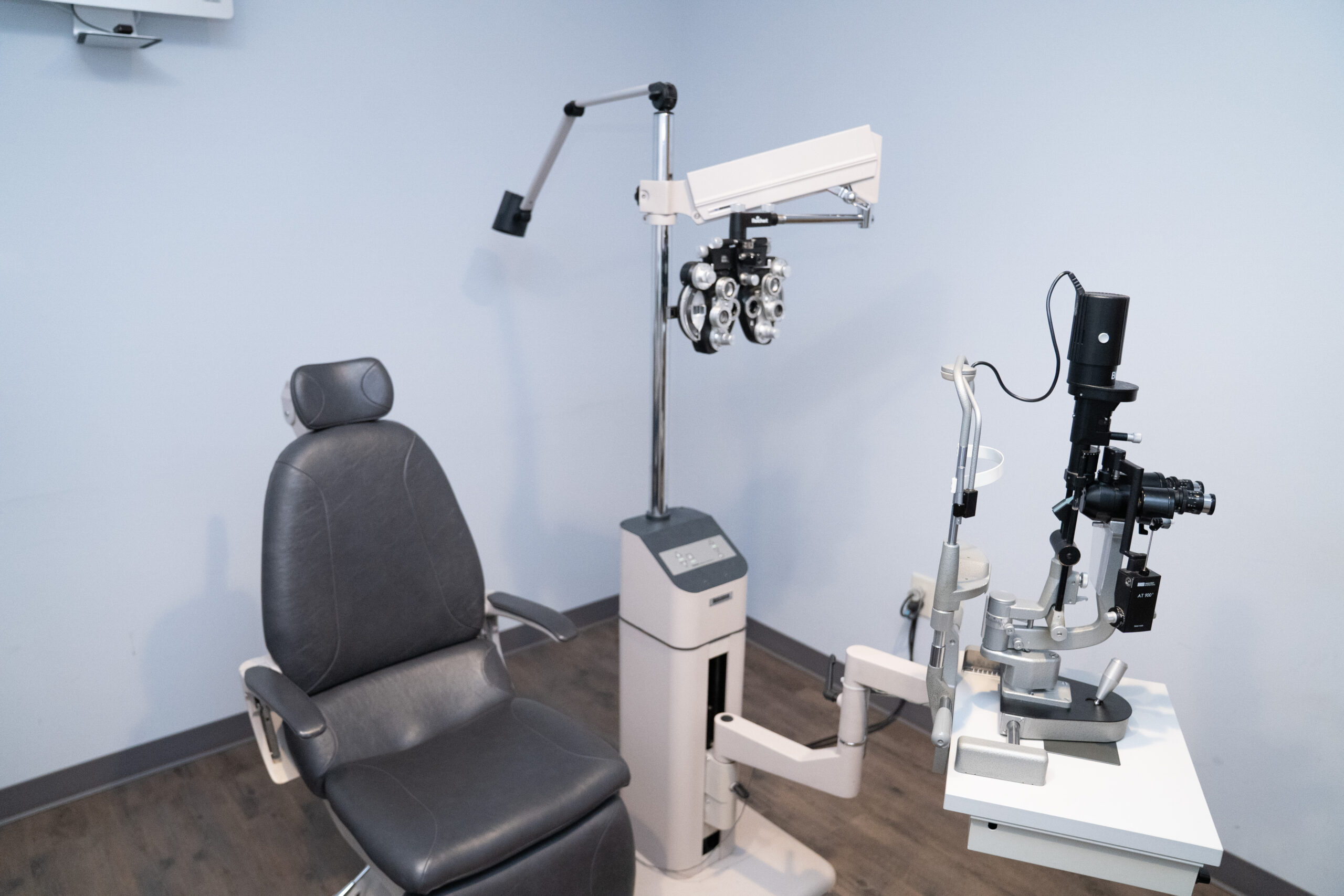Cataract Treatment
Restoring Clear Vision in Greensboro & Thomasville
Cataracts are one of the most common causes of vision loss, especially in adults over 60. They occur when the natural lens of the eye becomes cloudy, making it harder to see clearly. At Piedmont Eye Surgical & Laser Center, our board-certified ophthalmologists provide advanced cataract treatment to help patients across the Piedmont Triad enjoy brighter, sharper vision.
Quick Links
New Patient Forms
Get a head start on your appointment by completing your New Patient Forms before you arrive. Bringing your forms filled out helps us serve you faster and makes your check-in process smooth and easy.

What Are Cataracts?
A cataract is the clouding of your eye’s natural lens. Over time, proteins build up in the lens, causing vision to appear blurry, dim, or yellowed. Left untreated, cataracts can significantly interfere with daily life.
Common Symptoms of Cataracts
-
Cloudy or blurry vision
-
Glare or halos around lights, especially at night
-
Faded or yellowed colors
-
Needing brighter light to read
-
Frequent changes in glasses prescription
Cataract Surgery: The Only Effective Treatment
While glasses or brighter lighting may help in the early stages, the only definitive treatment for cataracts is surgery. Cataract surgery is a safe, outpatient procedure where the cloudy lens is removed and replaced with a clear, artificial intraocular lens (IOL).
At Piedmont Eye, we use modern cataract removal technology for a minimally invasive procedure and faster recovery.
Premium Lens Implant Options
During cataract surgery, patients can choose from different types of IOLs. In addition to standard lenses, we offer premium IOLs that can correct astigmatism and reduce dependence on glasses.
Monofocal Lenses – Clear vision at one distance (near or far).
Toric Lenses – Designed to correct astigmatism.
Multifocal & Extended Depth of Focus Lenses – Provide clear vision at multiple distances, reducing the need for reading glasses.
Our doctors will guide you in choosing the best option for your lifestyle and vision goals.
Getting Ready for Your Cataract Evaluation
To ensure the most accurate measurements and best results, please remove your contact lenses at least two weeks prior to your cataract evaluation with the doctors at Piedmont Eye. This allows your eyes to return to their natural shape and ensures precise testing during your exam.
Recovery After Cataract Surgery
Cataract surgery is typically quick and virtually painless. Most patients go home the same day and notice improved vision within days.
Day 0–1: Protective shield, mild scratchiness, start prescription drops.
Week 1: Vision continues to sharpen; avoid heavy lifting and swimming.
Weeks 2–4: Final prescription evaluation as healing completes.
Why Choose Piedmont Eye?
Thousands of cataract surgeries performed annually
Board-certified ophthalmologists with decades of experience
Advanced surgical technology for safety and precision
Personalized care tailored to your vision needs
Convenient locations in Greensboro and Thomasville
Important Reminder: If you wear contact lenses, please remove them at least two weeks prior to your appointment. This allows for the most accurate measurements and ensures the best possible results from your eye evaluation or procedure.
FAQs
Cataract FAQs
Eye Protection: Wear your eye shield while sleeping or napping for the first week.
Activity Restrictions:
Avoid heavy lifting (anything over 10 pounds) for 1 week.
When bending, bend at the knees — do not bend from the waist. Keep your head above your heart for 1 week.
No strenuous exercise (treadmill, elliptical, lawn mowing, etc.) for 1 week. Gentle walking is fine, but no power walking.
Do not play golf for 1 week.
Cosmetics & Personal Care: No eye makeup for 1 week.
Water Safety: Avoid swimming, hot tubs, or cold plunges for 2 weeks.
Appointments: No dental visits for 2 weeks before and after surgery.
Cataracts develop when proteins in the eye’s natural lens break down and clump together, causing the lens to become cloudy. Aging is the most common cause, but cataracts can also be linked to diabetes, smoking, certain medications, and prolonged sun exposure.
If cataracts are interfering with daily activities such as reading, driving, or seeing clearly at night, it may be time for surgery. Your ophthalmologist will recommend surgery when the cataracts begin to significantly affect your quality of life.
No. Cataract surgery is performed under local anesthesia with numbing eye drops. Most patients feel little to no discomfort during the procedure, and only mild scratchiness or irritation afterward.
Most patients notice clearer vision within a few days. Complete healing typically takes a few weeks, during which you’ll use prescription eye drops and attend follow-up visits.
It depends on the type of intraocular lens (IOL) you choose. Standard lenses usually provide clear vision at one distance, often requiring glasses for reading. Premium lenses, such as toric or multifocal IOLs, can reduce or even eliminate the need for glasses.
Yes. Cataract surgery is one of the most common and safest surgical procedures worldwide, with very high success rates. Complications are rare, but your ophthalmologist will discuss potential risks with you during your consultation.
